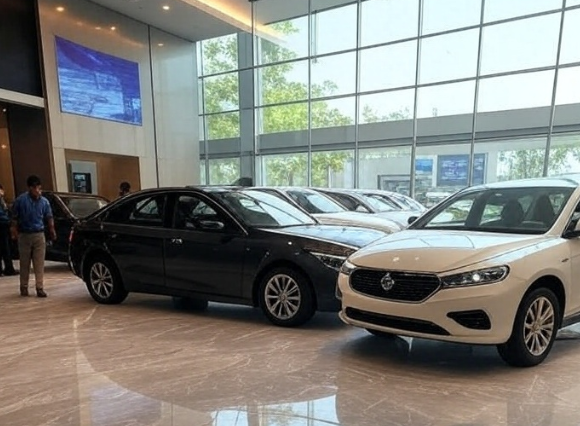
A new concern has emerged in the global auto sector, especially for electric vehicle (EV) manufacturers: China appears to be tightening its grip on the supply of rare earth magnets, a critical component in EV production. This development has alarmed not only Indian automakers but also global automotive giants, signaling potential disruptions across the industry.
What’s the Issue?
At the heart of the problem lies China’s recent move to impose stricter regulations on the export of rare earth magnets—materials essential to the functioning of electric vehicles. These magnets are used in various high-performance components of EVs, particularly in the electric motors that power them.
China has introduced new compliance requirements for companies importing these rare earth materials. Importers must now disclose detailed certifications about the intended use of the materials and must explicitly confirm that the magnets will not be used for military purposes. These additional layers of regulation have started to disrupt the smooth flow of exports.
Why is the World Dependent on China?
China plays a dominant role in the global rare earth market:
It accounts for 70% of the world’s rare earth magnet extraction from raw materials.
An even more staggering 90% of global production of these magnets takes place within China.
As a result, the global supply chain for EV components is highly reliant on Chinese exports.
This monopoly puts China in a powerful position to influence or restrict the flow of rare earth materials, and any move in this direction creates a ripple effect across the global auto industry
Why Are Rare Earth Magnets So Important?
Rare earth magnets are used extensively in the manufacturing of EVs:
Each electric vehicle uses around 3 kilograms of these magnets.
In contrast, internal combustion engine vehicles (ICEVs) use only about 100 grams of the same material.
These magnets are critical not only for the electric motor but also in various auto components like electronic systems, wipers, touchscreens, and more.
Given the small but crucial role these magnets play, any supply disruption can significantly impact overall EV production.
How Are Indian Companies Responding?
Several Indian auto manufacturers have raised concerns about the implications of China’s export restrictions:
Bajaj Auto has stated that if the situation does not improve by July, EV production could grind to a halt.
TVS Motors acknowledged growth in the EV segment but called rare earth magnets a major bottleneck in production.
Maruti Suzuki and Tata Motors, on the other hand, have downplayed the immediate impact, saying current conditions are still manageable.
Mahindra & Mahindra (M&M) mentioned that they have enough supply for the next two months, but uncertainty looms beyond that period.
Suzuki Motor has taken a significant step by halting production of its popular Swift model in Japan starting from May 26, 2025. The primary reason behind this decision is the increasing difficulty in sourcing rare earth elements, which are essential for various components used in electric and hybrid vehicles. This move marks the first time a Japanese automaker has been forced to suspend production due to restrictions on rare earth exports from China, bringing into sharp focus the global dependence on China for these critical materials.
China currently accounts for approximately 70 percent of the world’s rare earth extraction and about 90 percent of the global processing. These elements are indispensable for the auto industry, especially in electric motors, touchscreens, sensors, and other advanced vehicle technologies. As China imposes stricter regulations and certification requirements for exporting these materials, automakers worldwide are beginning to feel the impact.
While there has been no immediate disruption reported for Maruti Suzuki’s operations in India, industry insiders have raised concerns about the continuity of supply. If the current restrictions persist, inventories at Indian component manufacturers could deplete in the coming months, potentially leading to production delays.
This production halt by Suzuki is not an isolated event but a warning sign for the global automotive sector. As EV adoption accelerates, the demand for rare earth elements will only grow, and overreliance on a single country for supply could lead to more such disruptions. The auto industry is now closely watching the developments, hoping for a resolution or seeking alternative sourcing strategies to mitigate future risks.
Industry and Government Watch Closely
With supply chain issues escalating, both automakers and government authorities are closely monitoring the situation. Efforts may be underway to find alternative sources or build domestic capabilities, but such transitions take time and significant investment.
As the world pushes toward a greener future powered by electric mobility, China’s control over rare earth magnet supplies poses a serious challenge. For now, automakers across the globe—including India—must brace for potential disruptions, even as they seek long-term strategies to reduce dependence on a single source. The next few months will be crucial in determining whether EV production can stay on track or will face significant roadblocks.
Disclaimer:
This article is for informational purposes only. It should not be taken as investment advice. Readers are advised to consult a financial expert before making investment decisions.




